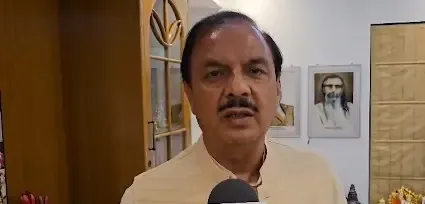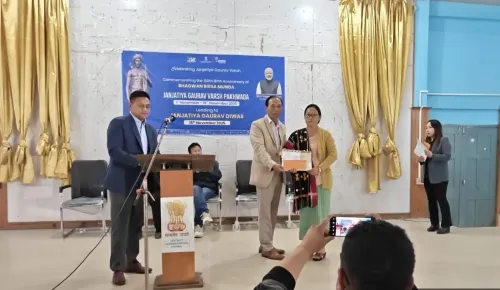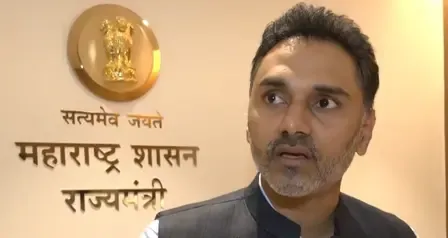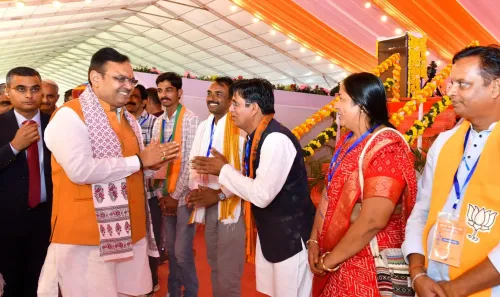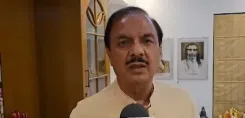Stalin Reiterates Tamil Nadu's Opposition to Hindi Imposition
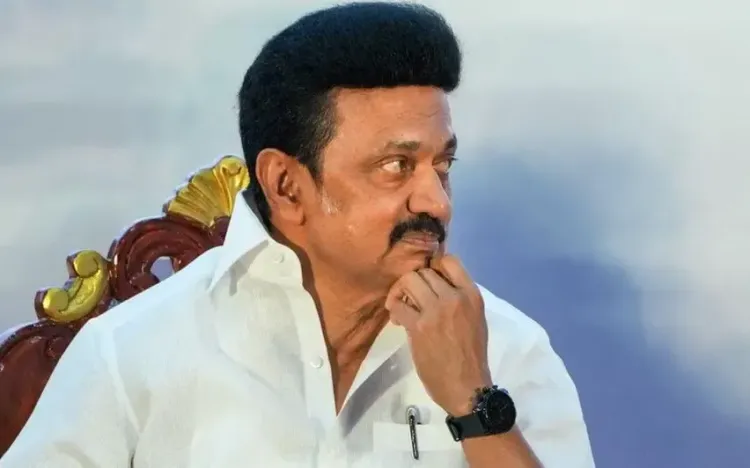
Synopsis
Key Takeaways
- Stalin's firm stance against Hindi imposition.
- Critique of the NEP's language policy.
- Highlighting the suppression of North Indian languages.
- Importance of Tamil and English in education.
- Historical context of Tamil Nadu's resistance to Hindi.
Chennai, Feb 27 (NationPress) Tamil Nadu Chief Minister and DMK President M.K. Stalin has once again emphasized that his administration will not allow the imposition of Hindi within the state.
In a letter addressed to party members, he articulated that although Hindi is being utilized as a facade, Sanskrit represents the true force driving language imposition.
The DMK has persistently challenged the Central government's three-language policy, which is part of the National Education Policy (NEP), accusing it of enforcing Hindi upon states that do not primarily speak it.
In his correspondence, Stalin argued that numerous North Indian languages, including Maithili, Brajbhasha, Awadhi, and Bundeli, which are spoken in states like Bihar, Uttar Pradesh, and Madhya Pradesh, have been suppressed by what he described as the “hegemonic expansion” of Hindi.
He asserted that over 25 indigenous languages in North India have been lost due to the overwhelming presence of Hindi and Sanskrit.
Stalin attributed the enduring Dravidian movement with preserving Tamil language and culture through ongoing awareness initiatives and protests.
He reaffirmed Tamil Nadu’s vigorous opposition to the NEP, accusing the Central government of advocating Hindi and Sanskrit under the pretext of educational reforms.
In response to the BJP's claim that the third language under the NEP could be a foreign language, Stalin contended that, in actuality, only Sanskrit is being promoted in various states. He cited the instance of BJP-led Rajasthan, where he alleged that teachers for Sanskrit are being appointed while instructors for Urdu are overlooked.
He cautioned that if Tamil Nadu were to embrace the trilingual policy, Tamil could eventually be marginalized, resulting in enhanced Sanskritisation.
He pointed out that under NEP directives, while Sanskrit is highlighted in schools, other Indian languages, including Tamil, are pushed to online learning.
“This clearly indicates that the Centre is scheming to undermine languages like Tamil and impose Sanskrit,” Stalin stated.
The DMK leader reminded party members that Tamil Nadu’s two-language policy - Tamil and English - was first established by former Chief Minister C.N. Annadurai decades ago. Annadurai strongly opposed the imposition of Hindi and the perceived influence of Aryan culture on Tamil identity.
Stalin underscored the state’s long-standing history of resisting Hindi imposition, referencing the anti-Hindi protests of 1937–39, during which leaders like Periyar (E.V. Ramasamy) and members of the Justice Party actively fought against making Hindi compulsory in schools under the then C. Rajagopalachari-led government. He also questioned the BJP’s critique of blackened Hindi signboards at railway stations in Tamil Nadu, asking whether railway stations in Uttar Pradesh feature Tamil or other South Indian languages for the benefit of passengers from the South, especially for events such as the Kumbh Mela or Kashi Sangamam.
He further inquired whether announcements at railway stations in Uttar Pradesh were made in other Indian languages.
Stalin asserted that Tamil Nadu’s unwavering commitment to its two-language policy has significantly contributed to the state’s progress in education, skill development, and job opportunities. He accused the BJP-led Central government of betraying Tamil Nadu and promised to take all necessary actions to protect the Tamil language.
“We won’t oppose if you don’t impose. We won’t blacken Hindi words in Tamil Nadu. Self-respect is the hallmark of Tamils, and we will not allow anyone, regardless of who they are, to undermine it,” he declared.

